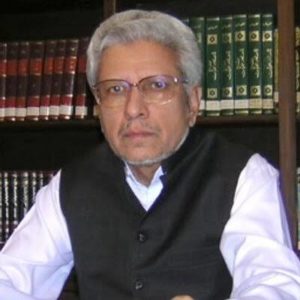

Comparison of Farāhī School`s approach with other contemporary approaches.Fathers of Farāhī School brief life sketches.Farāhī School`s position in this history,.In this course, we will study the following:

His approach was a response or in better words, a reaction towards the new approaches appeared in Indian academic circles, like, Sir Sayed School, Deobandi, Barelavi, ahl-hadith and ahl-al-Quran etc. Apart from that the founder of that school, Hameed al-Din al-Farahi(1863-1930) introduced an entirely new set of principles, to understand Islam, i.e. They do not consider anything else a source of Islamic teachings. Practical guidance and lessons that can be derived from each Surahįarāhī school of thought, emphasized on Quran and Sunnah.Explanation of key passages in each Surah.Quran and development in modern sciences and our interpertations.Problems with translation/ interpretation and alternative plausible interpretations.Discussion on linguistic devices of Quranic Arabic.Cross-reference to other parts of the Qur’an to demonstrate how ‘the Qur’an explains the Qur’an’.Inter-textual relationship and coherence (Nazm) between the verses of each Surah.Structure of the Quran organization of chapters and groups of Surahs.The historical context of Quranic revelations.How surah names are related to each Surah.This will be done by providing a systematic study of each of the Surahs as follows: It is an opening course for the students of Quran, or who are intended to start study Quran as a common reader to learn the message delivered to the humanity from their Almighty Lord Allah.

This course will provide an overview of the structure of the Quran, themes and guidance provided in each of the 114 chapters of the Qur’an. Module 9: Daily life Norms: edibles, Oaths and Etiquettes
Divine wisdom behind financial inequality. Module 8: Ma`ishat: Economics, Rules for Halal Earning, distribution of inheritance Module 7: Jihad: War: Philosophy, Rules and war-prisoners Responsibility of Family of Ismael PBUH. Module 6: Da`wah: Preaching in Islam, Philosophy, Rules and Strategy Module 5: `Ibādāt: Rituals in Islam: Philosophy, Rules and regulations Polygamy and other regulations for spouses. Module 4: Mu`āshrat: Social Teachings in Islam, Rules and regulations Places of Judgment day: Barzakh, Jannat etc. Module 3: Imānīyāt: Islamic Beliefs Concepts and Evidences What is most important requirement of Iman. Module2: Akhlāqīyāt: Morality in Islam: principles philosophy and concepts Requirements of Iman in crucial circumstances. Prophets (نبی), Messengers (رسول) books and finality of prophet-hood. Content of Islamic teachings: al-hikmah and al-kitab. The True Nature of Al-Din and its sources. Religion from nature to revelation (from Dīn to Al-Dīn Al-Ḥaq). Module 1: Dīn-e Ḥaq: Essence of Religion: Thematic summary of Islam After going through this course a participant will be aware of all Islamic teachings. This book introduces the pure Islamic teachings which means without the additions our respected clergymen have done.Īll basic teaching are covered Iman, Akhlaq, Sharia and Adab. The content of this course is based on the book: Al-Islam by Javed Ahmad Ghamidi Sahib. This course is a Brief but Comprehensive Introduction to Islam. Al-Islam for adults (see detailed outline under the course on the main page). Arabic I for adults (see detailed outline under the course on the main page). Challenging issues: evolution and creationism, atheism, orientalism, objections on the Quran, hadith and Sirah etc. Modern sciences (only Islam related issues) Philosophy, astronomy, physics, biology, Sociology, Psychology, Economics, Logic + منطق عربي ,. Skills: Surf o Nahav, Usual, Text-interpretation, Answering Questions (Applied Issues), logic. Modern and classical approaches in Islam, Fuqha, Muhadithun, zahrun, ahl al-Quran, farahi school, Political Islam, etc. Applied knowledge Ūsūl, Economics, Marriage, Divorce, Hijab, Islamic punishments, etc. Islamic Sciences Quran, Hadith, Sunnah, Sirat, History of Muslims, their Uloom and Fiqh. 
This course has the following seven main streams: Al-Mawrid wants to prepare highly learned researchers, teachers, counsellors and in Islam, without any sectarian and doctrinal affiliations and bindings.








 0 kommentar(er)
0 kommentar(er)
